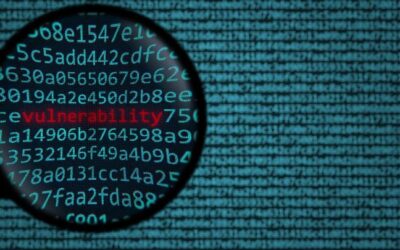Updated: Nov. 27, 2018
In today’s modern environment, businesses are more dependent on technology than ever before. These days, making sure that every device in your infrastructure is configured properly and communicating easily just it isn’t enough. You need deeper insight into your network equipment, looking at things from a “bigger picture” perspective to make sure everything functions not as individual elements, but as a comprehensive whole.
RMM, or “remote monitoring and management” software, is one of the most important tools for Managed Service Providers to have — you just can’t run a good IT business without it. RMM software allows your IT support provider to monitor and protect your entire network 24/7. It’s an organized system that compiles multiple network monitoring tools into one easily accessible place. In fact, it’s one of the most useful tools for MSPs to deploy when a client transitions from basic break-fix support to full managed IT services because of its convenience and flexibility. Lightweight RMM monitoring software can be installed to any fixed, mobile or virtual user device, and it allows the MSP to administer patch updates and real-time support throughout entire organizations en mass.
The Importance of RMM Support
Automation is one of the biggest perks of using an RMM to monitor companies with lots of users and endpoint devices. IT providers can configure the software to routinely run OS updates and software patches on set dates each month, so you’ll know exactly when to expect your devices to be busy rebooting and updating company-wide. The software even notifies your MSP automatically when it detects a problem on your network, creating a service ticket with a severity rank to ensure the issue gets right in front of your account engineer for review.
On-premises RMM offers your MSP optimal control over your network security. It involves some investment by the client in hardware and software licensing, but provides users with rounded, all-encompassing network protection. This type of RMM is preferred by larger businesses with primarily in-house staff and on-sire equipment.
Cloud-based RMM is best suited to businesses with device flexibility and remote work options. Entirely remote RMM options are easily to scale up and down, which is optimal for smaller businesses with rapid growth rates. There’s no hardware or additional licensing required, and the cost is a predictable monthly rate.
Some RMM providers offer network operation center (NOC) support, which handles back-end maintenance of the smaller, less serious issues typically reported by the RMM’s automatic service ticketing response. This ensures that the minor details get seen and solved even while your MSP is handling mission-critical projects for your company.
Many RMM providers offer device management platforms as well, compiling cutting-edge network security tools all in one place for ease of access and guaranteeing your team is always on top of your security posture. This allows your IT provider to securely manage all network devices across your organization from anywhere, at any time.
At Integris, we want you to be in-the-know about the latest and greatest in IT and security.
We can help. For more information about how Integris can benefit you:
Download this post for your personal resources

